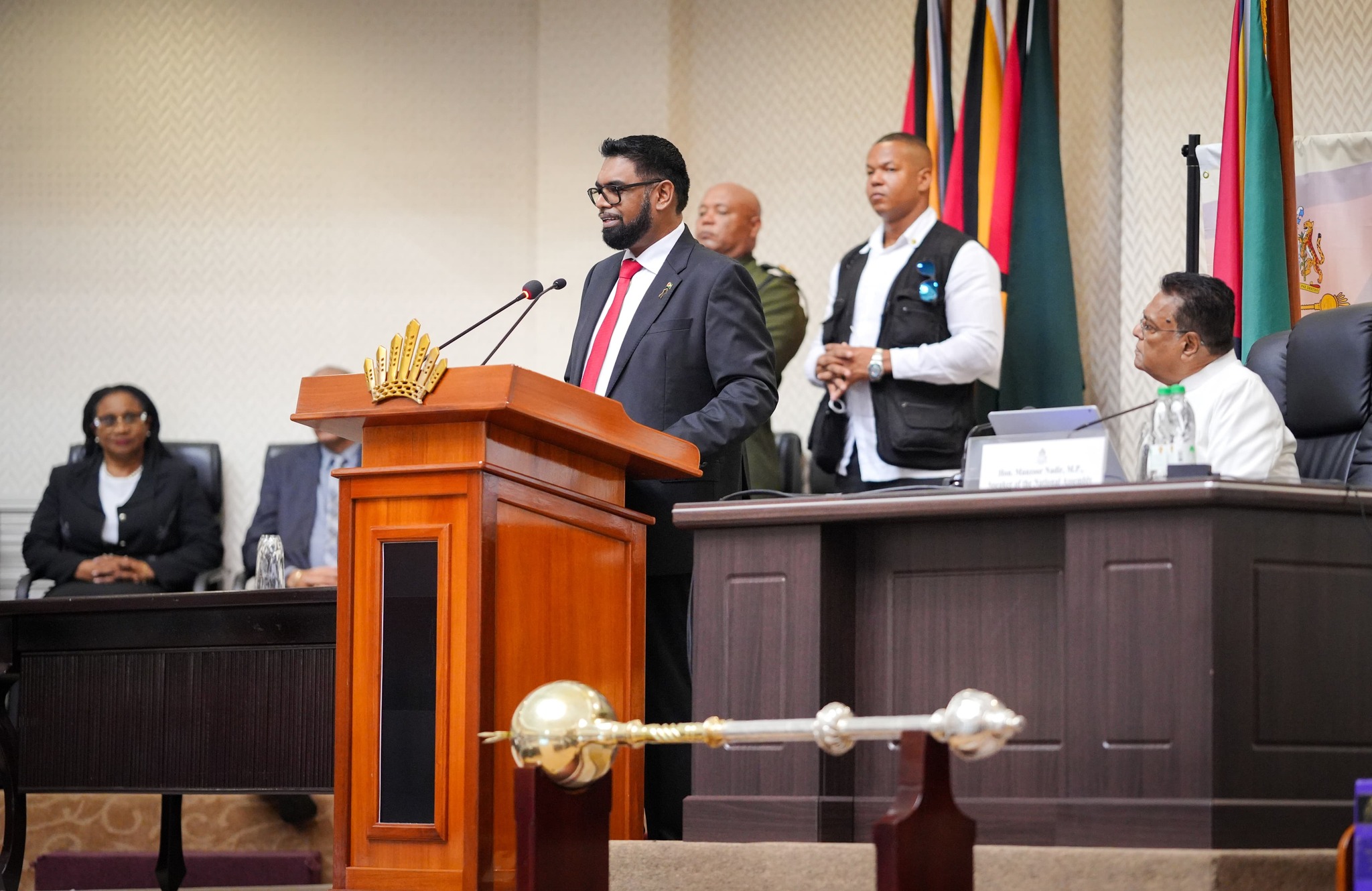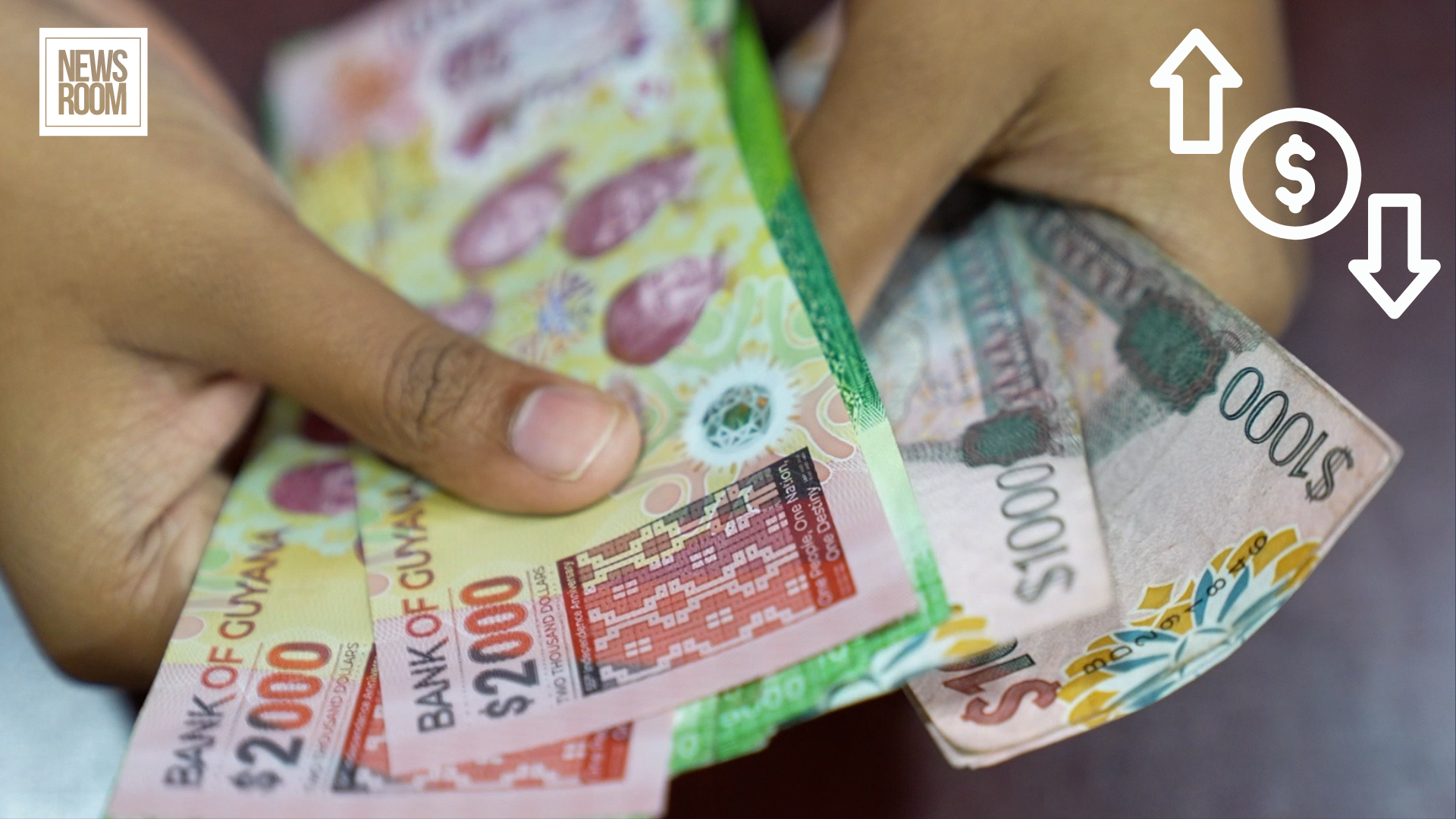President Dr. Irfaan Ali has said he expects accountability from the management of the Guyana Power and Light Inc. (GPL), stating that with the significant investments made into the sector, the utility’s management “will and must” deliver results.
Addressing Parliament in a special sitting on Thursday, Dr. Ali detailed his government’s efforts to overhaul the country’s power infrastructure.
A key part of the government’s long-term vision for the sector is the implementation of a smart grid by 2030, which will feature an advanced distribution management system, smart distribution equipment, and sophisticated metering technology.
Dr. Ali explained that this smart grid would lead to significant improvements in service reliability, reducing outages and ensuring a more efficient, responsive system.
“By modernising our grid with advanced technologies, we will not only meet current demand but also future-proof our system as we continue to grow,” said Dr. Ali.
“The smart grid will allow us to better manage the distribution of electricity, reduce outages, and enhance customer satisfaction.”
Dr. Ali reflected on the state of GPL when his administration assumed office in August 2020.
He noted that the power sector was grappling with a dire shortage of resources, inadequate inventory, and an ageing infrastructure that was failing to meet the growing demand.
Between 2015 and 2019, the customer base had increased by 10%, and peak demand had grown by 12%, but according to Dr. Ali GPL was ill-prepared to cope with these increases due to insufficient investment.
“During that period, GPL struggled with insufficient inventory, which hindered the planned network expansion and maintenance programs. The lack of investment in generating capacity further exacerbated these challenges, leading to significant system disturbances and growing frustration among customers,” Dr. Ali said.
Since taking office, Dr. Ali’s administration has committed over $28.1 billion (approximately US$137 million) to transform the energy sector.
This includes substantial upgrades to the country’s generation, transmission, and distribution systems.
Notably, the government has added 127.7 megawatts (MW) of generating capacity to the GPL grid, addressing a 64% rise in peak demand since 2019. This investment was also aimed at accommodating a 19% increase in the number of customers since 2019.
The president pointed out that the financial commitment to the power sector under his government was 173% higher than the previous administration, which had invested only $10.3 billion (US$49 million) in the energy sector. Of that amount, $4.1 billion was used to add just 17.4 MW of power generation capacity.
“Under our administration, we’ve not only surpassed that, but we’ve also achieved major strides in improving the entire network and infrastructure, creating a robust foundation for future growth,” Dr. Ali said.
In addition to the generation capacity, Dr. Ali detailed other major infrastructure projects.
These include the installation of more than 100,000 new meters and the replacement of close to 4,000 transformers. Almost 2,800 kilometres of new distribution network have been laid, while three substations have been expanded and upgraded.
Moreover, the government has successfully provided electricity to 27 communities that were previously unserved.

However, despite these substantial upgrades, Dr. Ali highlighted the challenges posed by rising fuel prices, which have had a significant impact on GPL’s finances.
He noted that the cost of fuel, which previously accounted for 53% of GPL’s revenue, now makes up 84% of the utility’s costs, due to a sharp increase in fuel prices from US$64 per barrel in 2019 to US$104 per barrel today.
Despite the escalating fuel costs, Dr. Ali assured Parliament that the government had not increased electricity tariffs since 2020.
“We have maintained the same electricity rates despite the substantial increases in fuel prices. This is a deliberate decision to protect consumers from the rising cost of energy,” the president said.
Looking forward, the government is set to complete the construction of new substations and further upgrade existing ones. These substations will be equipped with distribution feeders to support the smart grid.
Additionally, Dr. Ali committed to ramping up investments in renewable energy sources, including solar power, which will play an increasingly important role in enhancing the reliability and sustainability of the power grid.
“We are also investing in renewable energy, particularly solar power, to improve the grid’s reliability and contribute to a cleaner, more sustainable energy future,” he said.












